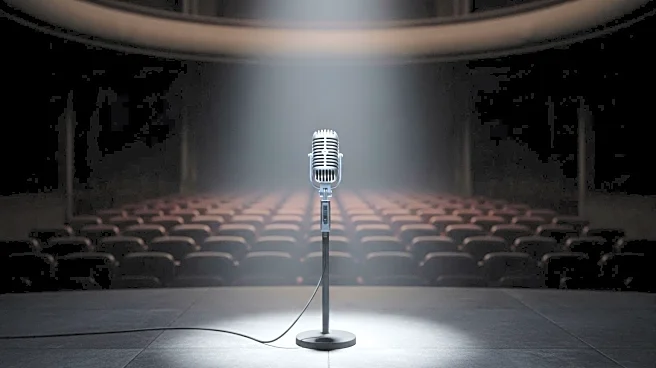What's Happening?
On September 23, 2025, Jimmy Kimmel delivered a monologue on his late-night show that sparked significant controversy, leading to network preemptions and FCC warnings. The line, 'I’m not gonna change anyone’s mind,' was part of a broader commentary that quickly became a national flashpoint. Major station groups preempted the show, affecting approximately 25% of U.S. TV homes. The FCC threatened probes, and affiliates weighed the business implications against free speech concerns. The incident highlights the tension between free speech and local TV economics, raising questions about the future of late-night programming.
Why It's Important?
The controversy surrounding Jimmy Kimmel's monologue underscores the delicate balance between free speech and regulatory oversight in the U.S. media landscape. The FCC's involvement suggests potential implications for broadcasters, as they navigate the risks associated with controversial content. This situation could influence how networks manage programming decisions, particularly in politically charged environments. The incident also reflects broader societal debates about censorship and the role of media in shaping public discourse, with potential impacts on advertising revenue and viewer engagement.
What's Next?
The fallout from Kimmel's monologue is likely to result in continued patchwork airing, with some markets streaming clips online while others maintain local preemptions. The FCC's posture could influence future affiliate mergers and deals, as networks and station owners seek predictable commercial terms. The creative community is expected to continue pressuring networks to uphold free speech, while station owners prioritize economic stability. This moment may redefine where viewers access late-night comedy, prompting shifts in audience behavior and network strategies.








